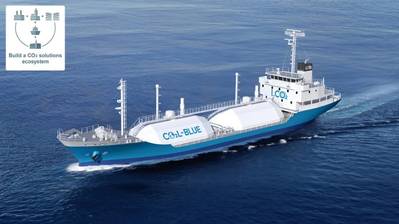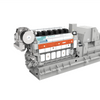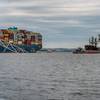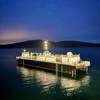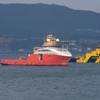Mitsubishi Shipbuilding Holds Keel Laying Ceremony for Liquefied CO2 Carrier
Japan's Mitsubishi Shipbuilding held a keel laying ceremony on Friday to mark the start of construction for a demonstration test ship for transport of liquefied carbon dioxide (LCO2).
The LCO2 will be used in conjunction with initiatives by the New Energy and Industrial Technology Development Organization (NEDO) for its carbon capture utilization storage and transportation demonstration projects.
The ceremony, conducted in the presence of representatives of the ship’s owner Sanyu Kisen Co., Ltd., was held at the Enoura Plant of Mitsubishi Heavy Industries’ Shimonoseki Shipyard & Machinery Works in Shimonoseki, Yamaguchi Prefecture, Japan.
The Engineering Advancement Association of Japan (ENAA), one of the consignees for the NEDO demonstration projects, will charter the ship from Sanyu Kisen, and install and operate the LCO2 marine tank system used to conduct research and development. 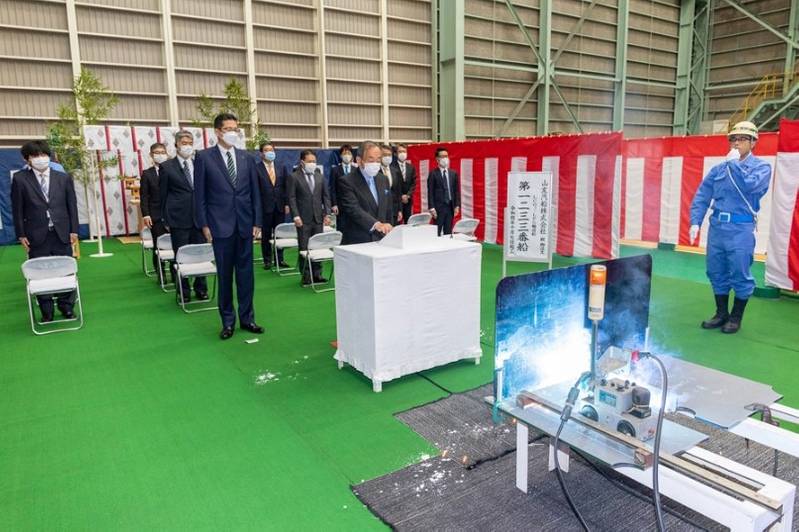 Credit: Mitsubishi Heavy Industries
Credit: Mitsubishi Heavy Industries
Three additional project partners, Kawasaki Kisen Kaisha, Ltd. (“K” LINE), Nippon Gas Line Co., Ltd., and Ochanomizu University, will be commissioned by ENAA to conduct R&D on the pressure control and stability of the LCO2 transported on the ship, and plan demonstration experiments, as well as develop and demonstrate technologies for safe and low-cost CO2 transport.
Representatives from Sanyu Kisen, Nippon Gas Line, and “K” LINE attended the keel laying ceremony, offering prayers for safety during construction, and the smooth completion of the vessel. Following launch, outfitting, and sea trials, the ship is scheduled to be handed over in the latter half of fiscal 2023 as an LCO2 carrier to facilitate carbon dioxide capture, utilization, and storage (CCUS).
"CCUS is gaining attention as an effective means of achieving a carbon-neutral society. Because the sources of CO2 emissions are often located distant from the sites selected for carbon utilization or storage, demand is expected to increase for LCO2 carriers able to transport such cargo safely and economically. Mitsubishi Shipbuilding will draw on its experience constructing this vessel to bolster its business for MHI Group’s energy transition strategy, and will develop the various technologies for LCO2 vessels necessary to establish a CCUS value chain," Mitsubishi Heavy Industries said.
LCO2 Vessel Overview
| Registration | Japan |
|---|---|
| Length overall | 72.0 m |
| Beam | 12.5 m |
| Draft | 4.55 m |
| Tank capacity | 1,450 m³ |



